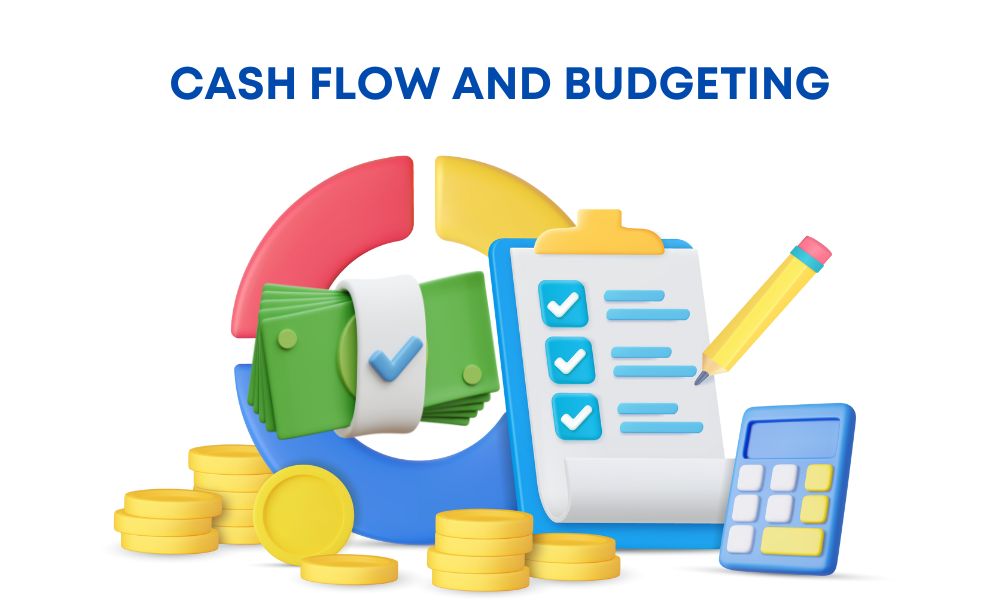
Cash Flow and Budgeting: Managing Your Finances Like a Pro
- FinanceWires
- 28 Jul, 2023
Welcome to our comprehensive guide on cash flow and budgeting! In this article, we will delve deep into the world of financial management, providing you with valuable insights and practical tips to help you master your cash flow and budget like a pro.
Understanding Cash Flow
Cash flow is the lifeblood of any business or household. It represents the movement of money in and out of your accounts over a specific period.
Having a positive cash flow is essential to sustain and grow your ventures, while negative cash flow can lead to financial difficulties and even bankruptcy.
Importance of Positive Cash Flow
Maintaining a positive cash flow is crucial for several reasons:
- Solvency and Stability: Positive cash flow ensures that you can meet your financial obligations promptly, instilling confidence in creditors, suppliers, and investors.
- Investment Opportunities: With surplus cash, you can capitalize on investment opportunities, expanding your business or enhancing personal wealth.
- Emergency Preparedness: A positive cash flow acts as a financial safety net during unexpected downturns or emergencies.
Analyzing Cash Flow
To gain a clear picture of your cash flow, you need to categorize your income and expenses into different streams:
- Operating Activities: These are the day-to-day transactions related to your core business operations.
- Investing Activities: This involves buying or selling long-term assets such as property, equipment, or investments.
- Financing Activities: Activities related to borrowing, repaying loans, or obtaining investment capital fall under this category.
Mastering Budgeting Techniques
Budgeting is a vital tool for controlling your finances and achieving your financial goals.
By creating a well-structured budget, you gain better control over your money and can make informed decisions about spending and saving.
Creating a Personal Budget
Follow these steps to craft an effective personal budget:
- Track Your Expenses: Start by recording all your expenses for a month. Categorize them into essential (e.g., housing, groceries) and non-essential (e.g., entertainment, dining out) expenses.
- Determine Your Income: Calculate your total monthly income from all sources, including salaries, bonuses, and additional revenue streams.
- Set Financial Goals: Define short-term and long-term financial goals, such as saving for a vacation, paying off debts, or building an emergency fund.
- Allocate Your Income: Allocate your income based on your goals and prioritize essential expenses. Be mindful of your spending patterns and find areas to cut back on non-essential items.
Implementing a Business Budget
Running a successful business requires meticulous budgeting. Here's how to create a business budget:
- Estimate Revenue: Analyze your historical sales data and market trends to forecast your revenue accurately.
- Identify Fixed and Variable Costs: Differentiate between fixed costs (e.g., rent, salaries) and variable costs (e.g., materials, utilities).
- Consider Seasonal Fluctuations: Account for seasonal variations that may impact your business and plan accordingly.
- Emergency Fund for Businesses: Set aside funds to handle unexpected events or downturns in the market.
Cash Flow and Budgeting Tools
With advancements in technology, numerous tools and software are available to simplify cash flow management and budgeting processes. Some popular options include:
- QuickBooks: An accounting software that helps individuals and businesses track income expenses and generate financial reports.
- Mint: A user-friendly app that allows you to create budgets, track spending, and set financial goals.
- You Need a Budget (YNAB): This app follows a zero-based budgeting approach, ensuring every dollar has a designated purpose.
Conclusion
By mastering cash flow and budgeting techniques, you gain control over your financial destiny. Remember to regularly review and update your budgets to adapt to changing circumstances and financial goals.
Now, it's time to take charge of your financial journey! Implement these strategies, and you'll find yourself better equipped to navigate the ever-changing tides of money.
